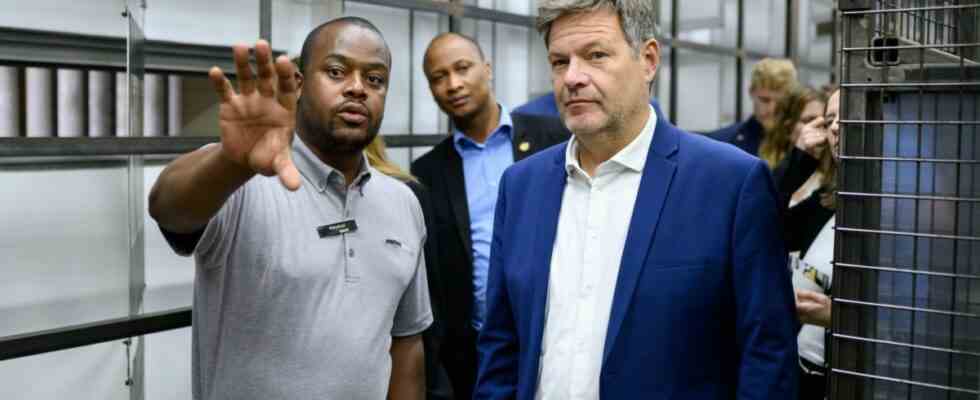It’s not the Africa from the news that Robert Habeck has been visiting these days. The German Economics Minister was not in a continent of crises, catastrophes and famines, but in a continent full of new beginnings and dynamism. But most German companies watch in amazement. What a mistake.
From a purely economic point of view, Africa is on a different planet for large parts of the German economy. Far less than one percent of their direct investments were directed to the countries south of the Sahara last year, trade with the continent is a case for microscopes. If companies dare to come here at all, then to oil-rich Nigeria or to South Africa. The rest of Africa is terra incognita for German companies.
However, they miss a lot by doing so. Countries like Rwanda, Kenya, Senegal and Namibia are developing at a rapid pace. In North Africa, Tunisia and Morocco are proving they’re not just good at football. An African free trade zone is in the making, which could boost long-suffering intra-African trade. But the image of Africa conveyed by the German media is still characterized by poverty, malnutrition and natural disasters. Young Africans who take their destiny into their own hands are rarely seen on German television. Unfortunately, this also clouds the view of many companies.
Where the big ones are missing, medium-sized companies are also rare
The consequences are fatal. There is no sign of the large German corporations in most African countries. And where the big ones are missing, medium-sized companies are also rare. The absence of German banks weighs even more heavily. Business in Africa is often too hot for them. But because they are not there themselves, they cannot get an idea of the situation. Instead, they act overcautious, constrained by all sorts of regulations. German export financing is no different: the public sector has also been running many of the African countries at junk level up to now. This inhibits every business and allows the banks to act even more cautiously.
The word “opportunity continent” has been circulating in various federal governments for years. Under the German presidency, the G20 group of industrial and emerging countries concluded a “Compact with Africa” in order to consolidate economic relations. But the numbers, at least as far as Germany is concerned, unfortunately speak a different language. In the tradition of colonialism, many still regard Africa as a welcome supplier of raw materials, be it minerals, battery raw materials, oil and gas or, more recently, green hydrogen. The fact that the continent is not a single unit, but consists of many individual countries with their own opportunities and developments, is overlooked.
Those who stay at home will miss opportunities
Where German companies shy away from the risks, others come. China has long been spreading across the continent – the economic power from which Habeck also wants to become more independent; and also through more engagement in African countries. But many of the countries will not wait for Germany. Your momentum is now. They will increasingly want to get involved in the refinement of raw materials, and the need for products and services will grow with their economy. The easier trade between African countries becomes, the more attractive they become for investments from all over the world. But many German companies are not even in the starting blocks. For too long they have ignored the continent on their own doorstep.
Politicians can do a lot to attract more companies to Africa, but that’s not all. Ultimately, a traditional image of the “dark continent” obscures the view of developments there. Yes, in many countries there are still corrupt regimes with which it would be better not to do business. Yes, some African countries are still dependent on aid to survive, while others are at war. But beyond that, there are many countries that can be really good partners, with the emphasis on partners. You have to go there to see it.

